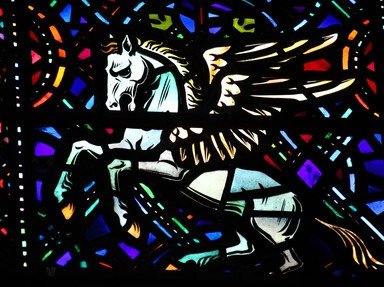Quiz Answer Key and Fun Facts
1. Aztec goddess of fire and volcanoes
2. Celtic goddess of fire
3. Egyptian goddess of the sun and fire
4. Greek goddess of the hearth and fire
5. Hawaiian goddess of fire and volcanoes
6. Japanese god of fire and the hearth
7. Mesopotamian god of fire, brother of the sun god
8. Norse god of fire
9. Slavic god of fire
10. Yoruba goddess of fire
Source: Author
bernie73
This quiz was reviewed by FunTrivia editor
ponycargirl before going online.
Any errors found in FunTrivia content are routinely corrected through our feedback system.

